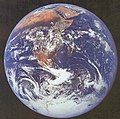Chem321:Problem Set 1
WORLD (Chemistry 321) |
| MAIN PAGE |
|---|
| Syllabus — Schedule |
| Welcome page Contact Dr. Walker |
| This week |
| Today's tasks — (tomorrow) |
| Course units 1 - 2 - 3 - 4 - 5 - 6 - 7 8 - 9 - 10 - 11 - 12 - 13 - 14 |
| Moodle site |
|
|
| Course content |
| Assignments Paper - Acme - 1 - 2 - 3 - 4 - 5 |
| Practice problems |
| Discussions |
|
|
| General wiki help |
| Basic editing Create an account Protocols Tutorial Demo, for practice |
Please type up your answers in Microsoft Word, Word Perfect, OpenOffice Writer or RTF file format, and email to me before midnight on Monday, June 6th. Do not post your answers on the wiki. All answers should be in YOUR OWN WORDS, except for a few direct quotes (given with attribution).
- Explain briefly the meaning of the following terms: Sustainable development, Agenda 21, social democracy, FTSE4Good, Technocrats (pre-WW2 meaning), Industrial Revolution, Externalities, Triple Bottom Line .
- (~200 words) Discuss the meaning of Fig 1.2 in Hill (pages 7-8). Be sure to explain the effects of affluence and urbanization on population.
- (a) (~300 words) Explain how poverty in Mozambique is leading to environmental damage in coastal areas. What specific problems are noted in the BBC report on the topic?
(b) Chico Mendes once said, "Poverty is the enemy of the environment." Try to suggest specific ways that poverty may harm the environment or inadvertently help the environment. - (100-200 words) On p4 of Hill, equity is given as an essential component of sustainable development. Explain why.
- (200-300 words) Explain Malthus's hypothesis on population growth. Have his predictions come true? Explain.
- (100-200 words) Are there limits to economic growth? Explain your answer.
- (~200 words) What does Lester Brown believe is wrong with the present system of economics? How can the market system be changed so that people begin to make economic choices that take into the environmental costs?
- (~200 words) Taking into consideration your answers to the previous two questions, give your own hypothesis for the future. Do you think Brown's approach is viable? Do not just give your "feelings," you must try to argue your case rationally using scientific evidence (where possible) to support your hypothesis.
